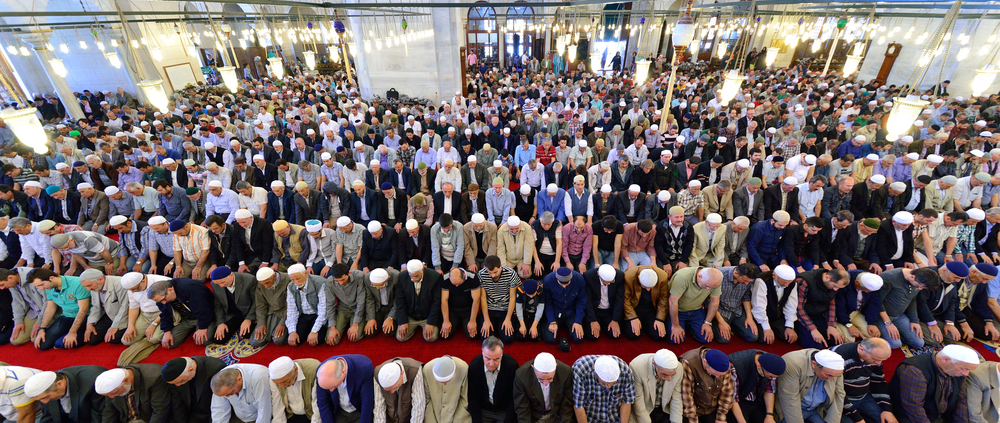Is It Still Obligatory for Me to Go to the Masjid If I Have Homosexual Feelings toward the Men around Me?
Shafi'i Fiqh
Answered by Ustadha Shazia Ahmad
Question
My friend literally cannot enter a masjid without feeling aroused, and he cannot focus on prayer at all. What should he do in regard to the Friday prayer or other prayers within the masjid? Is it still obligatory for him to go? Can he still get married?
He really wants to get married to a woman but he doesn’t think he can do it. He doesn’t think he will be happy and it makes him really upset and sad that he wants to be attracted to a woman, but he feels no attraction or arousal toward them. Why would Allah give him these feelings?
Answer
Thank you for your question. I pray that your friend finds a path that is easy for him in dealing with these many emotions and temptations. It is a very difficult tribulation and my prayers are with him.
Congregational Prayers
It remains obligatory for him to attend the Friday prayer. He should take measures to lower his gaze, and reduce interaction accordingly to limit his temptation. I would never suggest to him to reduce his attending the mosque, as the mosque is a house of God, and it is the very place for strengthening one’s faith, patience, and God-fearingness. Rather, let him go to the mosque and communicate his every need, pain, and desire to His Lord. Allah will surely answer him.
Please see the details in the link for more details about attending congregational prayers:
How Can a Muslim Deal With Homosexual Inclinations?
Marriage
Yes, he can definitely still get married, and I pray that through marriage, he will find a halal way to fulfill his desires and enjoy the tremendous blessing of children and companionship. I know that he cannot simply change whom he is attracted to, and I know that he will suffer from being unable to be with the same gender, but his suffering will not go unrewarded. Attaching himself to God will churn out several blessings and much good for him and his family in this life and the next. He will require a mountain of patience, faith and endurance for this and I guarantee that Allah Most High will come to his aid.
Please remind him of this hadith: The Prophet (Allah bless him and give him peace) told us, “Verily, you will never leave anything for the sake of Allah Almighty but that Allah will replace it with something better.” [Ahmad]
Tribulation
Allah Most High has told us in the Quran, “Do people think once they say, ‘We believe,’ that they will be left without being put to the test?” [Quran, 29:2]
This world is a place of tribulation and trials, and Allah will test people differently. Your friend’s test is a very difficult one, and I pray that he reacts in the way that Allah wants him to react.
Allah has asked us to be patient during these tribulations and He has also promised us ease after every hardship. Allah Most High has told us in His book, “So, surely with hardship comes ease. Surely with (that) hardship comes ˹more˺ ease.” [Quran, 94:5-6]
Burden
In addition to this, Allah does not make anyone carry a burden that they cannot bear. Allah has told us in His book, “God does not burden any soul with more than it can bear: each gains whatever good it has done, and suffers its bad- ‘Lord, do not take us to task if we forget or make mistakes. Lord, do not burden us as You burdened those before us. Lord, do not burden us with more than we have the strength to bear. Pardon us, forgive us, and have mercy on us. You are our Protector, so help us against the disbelievers.’” [Quran, 2:286]
Your friend must remember that absolute peace, happiness and ease are saved for the next world, compared to which this world will seem like a single evening or half a day. May Allah grant us His favor of Paradise.
Please see these links as well:
What is Our Purpose in This World?
How Do You Distinguish Between a Test From Allah and Punishment?
Am I Accountable if I Can’t Be Patient in a Test?
May Allah give you the best of this world and the next.
[Ustadha] Shazia Ahmad
Checked and Approved by Shaykh Faraz Rabbani
Ustadha Shazia Ahmad lived in Damascus, Syria for two years where she studied aqidah, fiqh, tajweed, tafsir, and Arabic. She then attended the University of Texas at Austin, where she completed her Masters in Arabic. Afterward, she moved to Amman, Jordan where she studied fiqh, Arabic, and other sciences. She later moved back to Mississauga, Canada, where she lives with her family.
